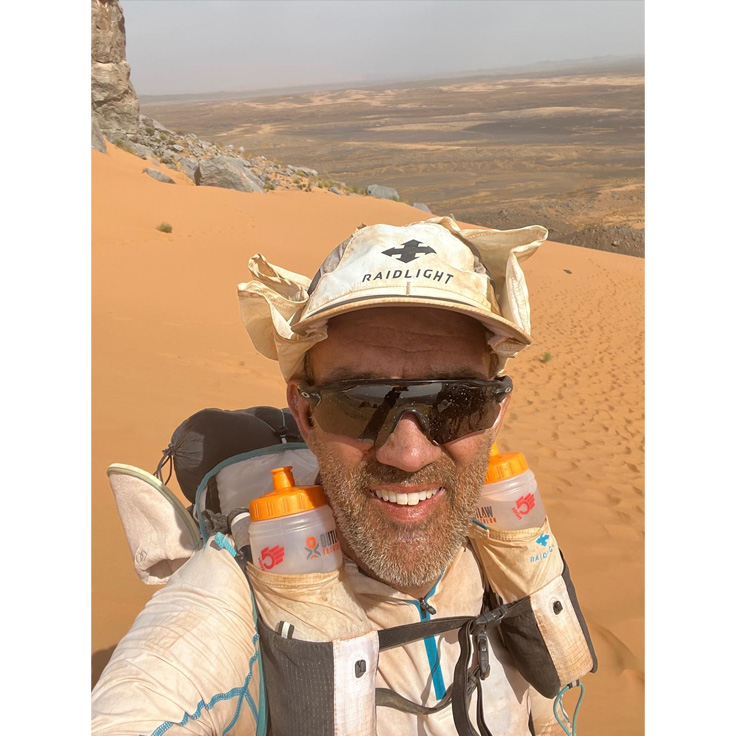
13 May 2025
“Since my early days in the med tech industry, I can remember surgeons remarking on how many conditions could and should be treated before people become ill,” says James Clarke, who joined Illumina’s commercial team earlier this year. His interest in genomics, and Illumina, had grown during his 25 years in health care sales, and Illumina’s mission—to improve human health by unlocking the power of the genome—especially resonated with him. “It’s rare in health care that you get the chance to work with groundbreaking technology that will drive the shift from ‘sick care’ to health care, so when this opportunity came up, I jumped at it.”
Clarke is responsible for sales performance in the United Kingdom and Ireland. He explains that all five countries have their own health economy, with slightly different needs—but a common denominator they share is long waiting lists for patients.
“We’ve got an increasingly growing population and we’re not building more hospitals, so the capacity is being breached,” he says. “There’s an awful lot of stress on the health care system.” To him, the obvious solution is prevention. If people don’t have to become patients in the first place, they can avoid the practical and bureaucratic difficulties associated with getting the right care.
Clarke is enthusiastic about the fact that genomic research is being translated to and implemented in the clinic. Illumina is working with two of the major initiatives for prevention in the UK: the UK Biobank and the Generation Study newborn screening program. “All of that work is starting to feed into how we can actually do things differently within a growing population,” he says. “It’s so needed, and every customer interaction I have really drives that home. To play a small role in moving that forward is a real privilege. And Illumina is driving so much of that innovation.”

Photo by Marathon des Sables
Running sales, and running the Sahara
Last month, Clarke flew to Morocco to take part in the Marathon des Sables. Through the punishing Sahara Desert, he ran more than 250 kilometers (155 miles) over seven days. That’s an average of a marathon per day, although one stage is nearly a double marathon—82 kilometers—so competitors can have a rest day.
The terrain is mixed. At the start of the course, runners must traverse very steep and challenging sand dunes. “Most people think the Sahara is waves of dunes,” Clarke says. “But the landscape is barren and rocky. There are hard plateaus with lots of broken-up rocks and they’re all at an altitude of about 800 feet. It’s a bit like a moonscape. It’s otherworldly.” In other words, it’s quite a departure from the verdant English village near Ely, where he lives.
Navigating the course requires looking for checkpoints and little flags in the ground; runners must be skilled at orienteering with a map and compass. At night, they use headlamps. At one point during the long stage, a sandstorm obscured their view.

Photo by Marathon des Sables
The race is unsupported, meaning the runners carry everything they need in their rucksacks, including food and sleeping bags. Stations at the end of each stage distribute five liters of water for each person to cook, wash, and hydrate
Clarke’s main reason for running the Marathon des Sables was to raise money for Dementia UK, a charity that provides free support to families through dementia specialists known as admiral nurses. “The care that the charity gives—for the family members as well as the person affected—is invaluable.” Colleagues who donated to his cause could take advantage of Illumina’s matching benefit.
Sadly, a few of Clarke’s relatives have experienced long-term illness, which inevitably impacted everyone in the family. “Dementia and Alzheimer’s leave you feeling exhausted, overwhelmed, and helpless,” he says. “It’s a horrendous disease.” Both his grandparents were diagnosed with dementia in their later years, but were unaware of Dementia UK and the work they do at the time. His wife recently lost her uncle after he lived with dementia for many years. “Dementia is not something that lasts a few weeks. It’s often months—and, in a lot of cases, years—and those areas of respite and relief that the charity provides are a real lifeline.”

Photo by James Clarke
In the right place for change
Dementia is a general term that can describe frontotemporal lobe dementia, Alzheimer disease, and several other conditions. Illumina is building tools for genomic sequencing and multiomics to help researchers identify new variants and etiologies, as well as to support the development of targeted therapies. Illumina’s Correlation Engine is an interactive omics knowledge base and data search engine that puts private data into biological context with public omics data curated by experts. Researchers using the Correlation Engine today can find 38 articles and 572 studies in dementia, Alzheimer disease, and related fields. The breadth of biology captured in Correlation Engine’s nearly 27,000 curated studies is also essential to dementia researchers, in that new disease relationships and treatment profiles open doors in biomarker discovery and validation.
“It’s quite meaningful to work at a company that prioritizes health and well-being,” Clarke says. “What’s very clear within the culture of Illumina is that the people do care about so many of these various conditions.” ◆


